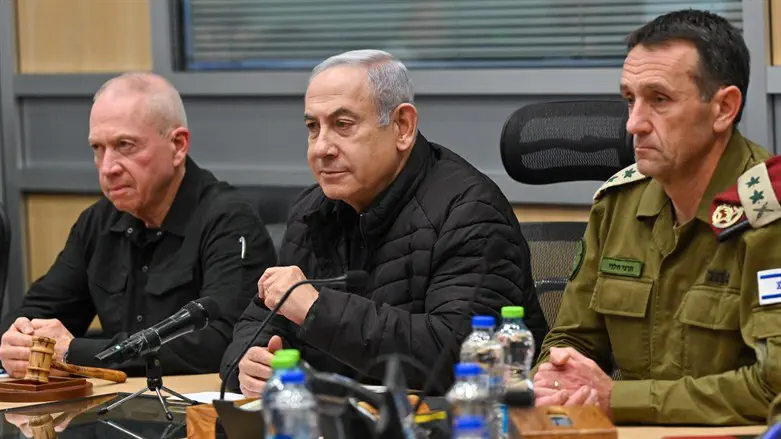
A new survey published by Gesher, which nurtures and trains Israeli leaders to forge connections and unity between different sectors of the Jewish people in Israel and the Diaspora, ahead of Yom Kippur, reveals that most Israelis believe that national resilience is stronger, compared to last year.
An absolute majority of the Israeli public believes that the country's leadership has not expressed sincere and true remorse for its part in the failure leading up to the October 7th massacre, mainly Prime Minister Benjamin Netanyahu; who only 13% of the public believes expressed remorse for the attack.
In comparison, two figures who stood out in the survey as those who are perceived as having expressed sincere remorse, are Chief of Staff Herzi Halevi (29%) and Commander of the IDF Officers' School, Major General Aharon Haliva (24%), who actually took responsibility and resigned.
An even lower percentage of women, only 10%, believe that Benjamin Netanyahu he has expressed sincere and genuine remorse, while 15% of men believe that he has expressed remorse.
A completely different picture is seen among the haredi and Arab public, with 24% of the Arab public believing that the Prime Minister has expressed remorse and over 27% of the haredi public expressing the same views.
Who should the Israeli government ask for forgiveness from?
The Israeli public believes that the Israeli government should ask for forgiveness from the families of those murdered on October 7th (33%) and from the families of the hostages (30%). Next, were those who said that the government must ask for forgiveness from the families of the war victims (10%) and from the residents of the north (3%). Almost ten percent of the public (8%) believe that the Israeli government does not need to ask for forgiveness at all.
On the issue of "forgiveness", there is a big difference in the opinions between the secular and religious-haredi public: the secular public believes, for the most part, that forgiveness should be addressed to the families of the hostages (44%), while only a small part of the religious and haredi public thinks so, with 10% and 14% respectively. According to the religious public, the request for forgiveness should be directed at the bereaved families of October 7th and those killed in the war, 36% and 19% respectively.
About a quarter of the haredi public (24%) believes that the Israeli government does not need to ask for forgiveness at all.
The internal conflicts within us
According to the survey, almost half of the respondents (44%) believe that we have remained as divided as before the war. 31% are a little more optimistic and claim that there is a change in the nation, but the politicians continue to cause division. Only 18% believe that we have indeed learned a lesson from the events of October 7th, and there is greater concern among the various groups in Israeli society.
In a gender distribution, the survey found that more men think that we have remained divided (50%), compared to 40% of females who think so. On the other hand, more than one third of women see the politicians as a divisive factor (36%). A large part of the haredi public believes that we have learned the lessons of October 7th and today there is greater concern between the different social groups (32%), compared to the secular public, which believes (48%) that we remain divided and 39% of which believes that the politicians are causing division.
There is also reason for optimism
The majority of the Israeli public believes that the resilience of the people of Israel this year is stronger than last year on the eve of Rosh Hashanah 2023 (46% believe that it is stronger, compared to 28%, who believe that we have weakened). 15% believe that it remains the same.
Among the religious and haredi sectors, the sense of resilience is significantly stronger than the rest of the population, with 73% of the religious and 63% of the haredi believing that we are stronger this Rosh Hashanah. On the other hand, the secular public in Israel believes that we are weaker than the previous Rosh Hashanah, with 39% compared to 36% who believe that we have become stronger.
Ilan Geal-Dor – Gesher's CEO, said that "in every survey and research we have carried out over the years, we consistently and clearly see how the unity and resilience of the Israeli people are essential elements for the very existence of the State of Israel. Even these days, when we are fighting on several fronts, Israelis continue to emphasize the importance of unity and mutual responsibility. Here also lies the difficulty of Israelis with the failure to take responsibility and the lack of remorse on the part of the country's leaders. I am hopeful that the Ten Days of Repentance will be the beginning of a process to build trust and responsibility between the people and their leaders, and unity between the different sectors in the State of Israel."

